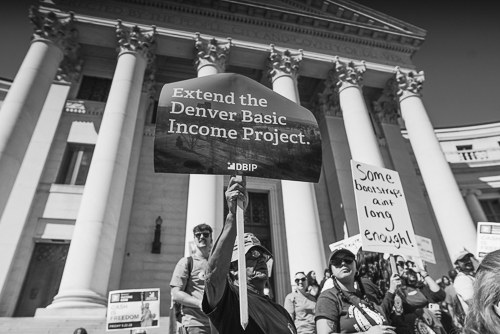| Photo: Armando Geneyro Note: The use of the term Basic Income in this article does not conform to BIEN’s definition. Denver Basic Income Project (DBIP) has released the results its Year One quantitative and quantitative findings. What the research has discovered supports what DBIP always believed – that guaranteed income gives families and individuals financial tools, and a cushion to cover their most basic needs per their circumstances. DBIP’s research shows: |
 |
| You can review the Year One Research Report Executive Summary for an in-depth look at the research design, cost analysis due to reductions in public service utilization, and notable findings from both the quantitative and qualitative reports. You can read the full reports on the research page of DBIP’s website. |
| READ THE SUMMARY |
Given that Denver annually spends over $40,000 on shelter and medical costs per person experiencing homelessness and is also dealing with the humanitarian and fiscal crisis of people arriving from the borders, cost-effective programs like this are extremely valuable. As the first and largest project of its kind studying the impact of guaranteed income on homelessness, the research and results of the Denver Basic Income Project have the potential to be replicated and scaled across the U.S. The Year One report is a monumental milestone for the Denver Basic Income Project, and we would not be here without the support of the community and our generous funders, including the City and County of Denver, The Colorado Trust, the Denver Foundation, and the Wend Collective. |


